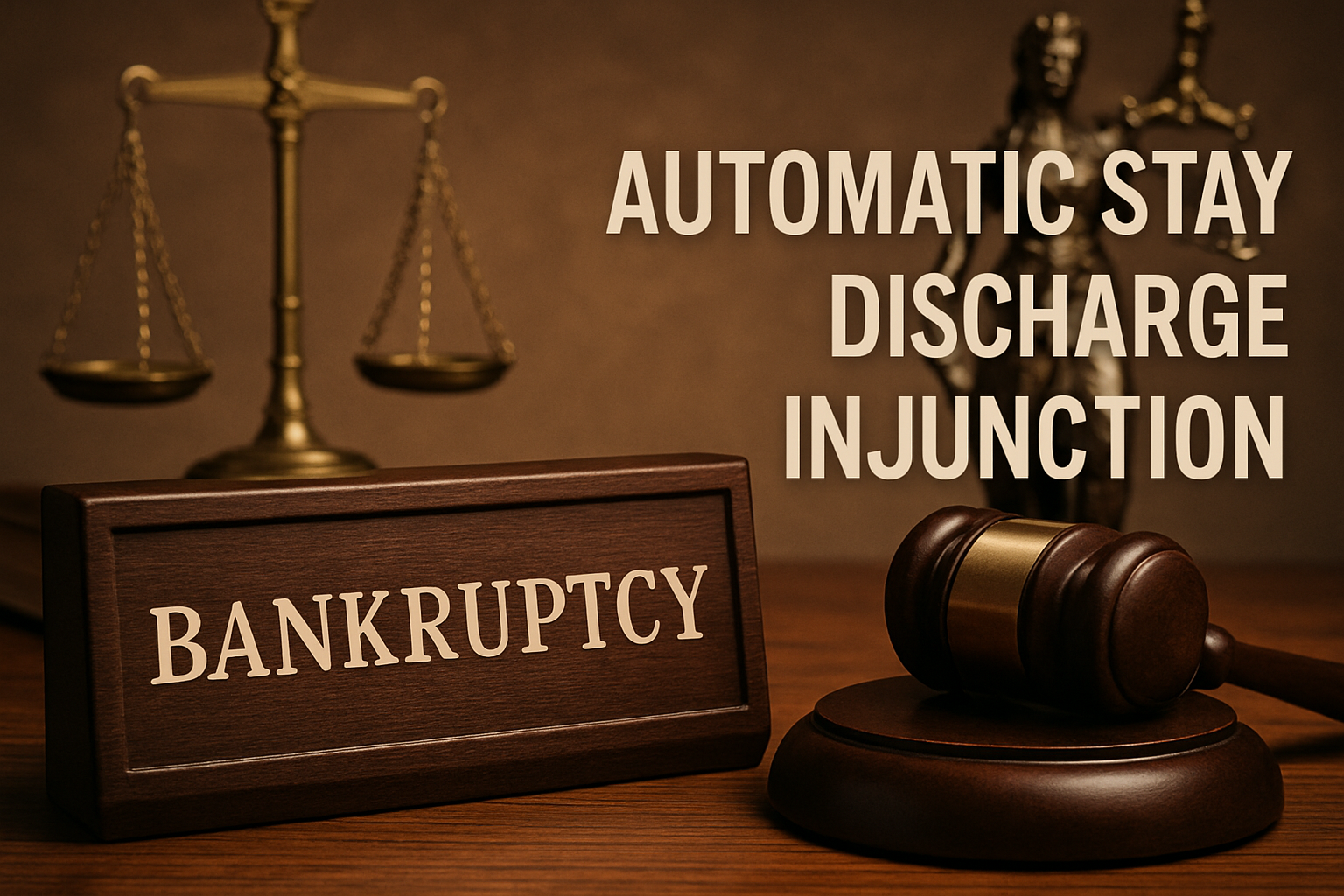
Filing for bankruptcy is a powerful legal tool designed to give debtors a fresh start and protect them from overwhelming creditor pressure. But it’s also a serious process governed by strict federal laws. Two of the most important protections in bankruptcy—the automatic stay and the discharge injunction—are not just procedural formalities. They are court-ordered protections with real consequences for anyone who violates them.
The Automatic Stay: An Immediate Shield
The moment a bankruptcy petition is filed, the automatic stay takes effect. This stay halts most collection efforts, lawsuits, foreclosures, repossessions, wage garnishments, and even phone calls from creditors. Think of it as a legal shield that instantly surrounds the debtor, ensuring that the bankruptcy court can fairly administer the case without interference.
Violating the automatic stay is a serious matter. Creditors who knowingly continue collection efforts can face sanctions, including paying the debtor’s attorney’s fees, damages, and, in egregious cases, punitive damages. Courts take these violations seriously because the stay is the backbone of bankruptcy protection.
The Discharge Injunction: A Fresh Start Protected
When a debtor successfully completes a bankruptcy case, the court issues a discharge order. This order wipes out many types of debt and replaces the temporary protection of the stay with a permanent discharge injunction. The injunction prohibits creditors from attempting to collect discharged debts ever again.
A creditor who ignores a discharge injunction risks being held in contempt of court. Consequences can include fines, damages to the debtor, and other penalties. The courts enforce this protection aggressively because the discharge is the very promise of bankruptcy—a true financial fresh start.
Why This Matters
For debtors, these protections are essential. They provide peace of mind and the breathing room needed to rebuild financially. For creditors, it’s a warning: bankruptcy law is not optional. Ignoring the stay or the discharge can lead to legal and financial penalties far more severe than the amount being collected.
Bankruptcy is not something to take lightly. Whether you are considering filing or are a creditor facing a bankruptcy notice, it’s critical to understand your rights and obligations under these federal protections.
At David C. Barsalou, Attorney at Law, PLLC, we help clients navigate business, family, tax, estate planning, and real estate matters ranging from document drafting to litigation with clarity and confidence. If you’d like guidance on your situation, schedule a consultation today. Call us at (713) 397-4678, email barsalou.law@gmail.com, or reach us through our Contact Page. We’re here to help you take the next step.